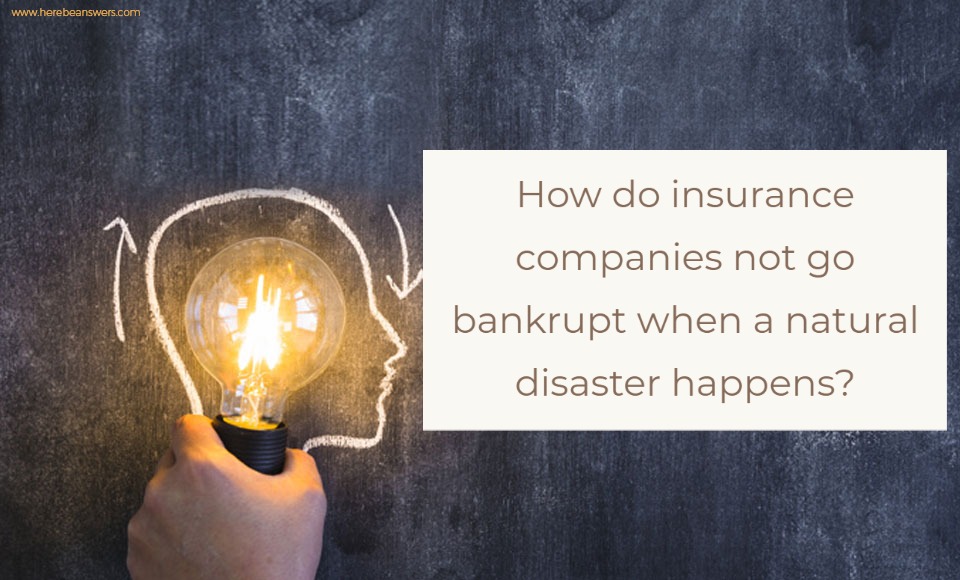When thinking about the logistics of insurance and how it works, an interesting question comes to mind. What happens if some major disaster takes place? How can an insurance company possibly keep up with all the sudden pending payments? The short answer is…they don’t. The long answer is a little more complex.
Natural disasters are force majeure and usually not covered, and for those policies that do cover them, they have actuaries (data scientists) making sure that the loss of disaster is lower than the expected premium plus investment earnings earned. Furthermore, your insurance company doesn’t always hold your policy any more than Walmart makes your Nintendo console.
Many consumer insurance companies simply resell the risk of the insurance to an even larger company. The insurance industry has enough money to pay these sorts of things off because people pay a ton of money for insurance, and not just health insurance.
In the developed world on average 9% of all the income of every dollar spent in an entire year goes into insurance. In the US that’s almost 2 trillion dollars every year that goes straight to pay for these sorts of things and sits there until it’s needed.
Even after all of this is said and done, there still remains the fact that a lot of the time, insurance companies simply refuse to pay up. Not illegally of course. Insurance companies are well versed in law, and have hired many lawyers that help them escape payments. It’s a complex network of unfair legal actions, but in the end, insurance companies tend to end up convincing the judge that they are not obligated to pay up for whatever disaster that may have struck.

